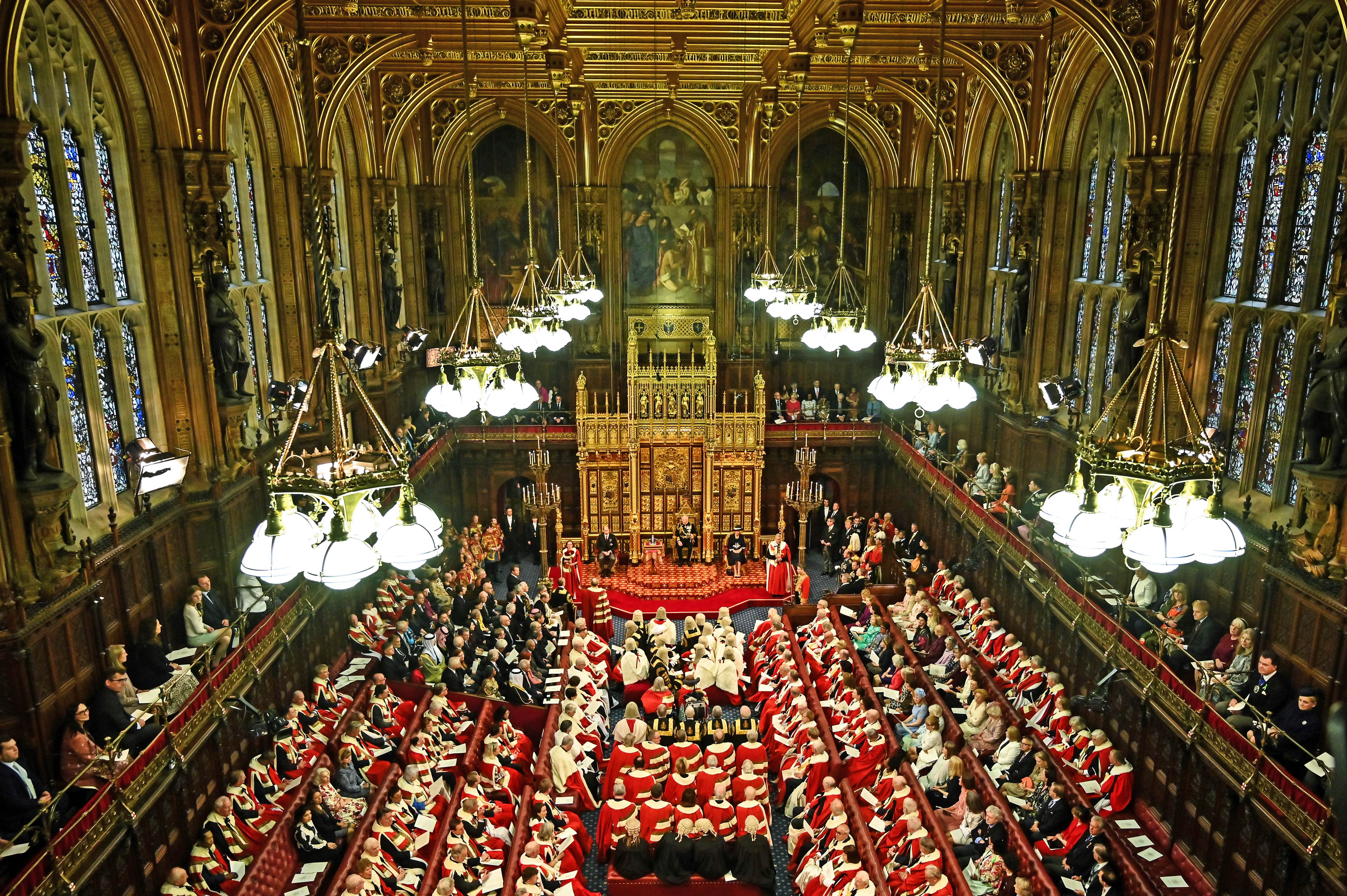Replace the House of Lords? Sure – got a better suggestion?
Like our hereditary monarchy, it is impossible to justify the existence of the second chamber of UK parliament from first principles, and easy to list its drawbacks, writes Sean O’Grady. Yes, it’s an absurdity – but a useful one


Thank goodness for the House of Lords. In a nation permanently in danger of lurching into a form of elective dictatorship – “will of the people” and all that – the fact that we have a bunch of independent-minded, objective, experienced and, though one hesitates to slather them with such panegyrics, wise counsellors is something we all ought to be grateful for.
They represent an essential element of the constitution, though almost impossible to justify on any grounds other than their utility and their determination to do their undefined job – to constrain an over-mighty government of any party.
They lack, pretty obviously, any democratic mandate; some members, past and present, have been “problematic”, as the modern term goes; and there is always going to be a whiff of corruption about any politically powerful place largely filled with the beneficiaries of prime ministerial, or ex-prime ministerial, patronage.
Like our hereditary monarchy, it is impossible to justify the existence of the House of Lords from first principles, and easy to list its drawbacks. It’s an absurdity; but a useful one. The institution evidently works as a revising chamber and a constitutional check and balance; and no one has ever worked out how to replace it.
So, it is no great surprise that as the Lords turns its attention to the Rwanda plan and its associated treaty, it finds itself as dismayed as anyone by its practical and legal shortcomings. Like the little boy who called out the emperor’s new clothes, we have to rely on the Lords to set out the simple fact that just because the government declares that something is safe, it doesn’t actually mean it is safe.
To be silly for a moment, a government with a working parliamentary majority could probably get a bill through the House of Commons declaring that strolling into a burning building in Bermuda shorts is perfectly safe, but that doesn’t of course mean it is safe and carries no risk to health. This is all the Lords’ closely argued and succinct report on the Rwanda treaty does – pointing out the very obvious fictions that underpin the legislation. Getting the Rwanda plan up to the standards required by the Supreme Court to make it lawful will take a lot more time and effort than what Rishi Sunak, James Cleverly and their friends in Kigali have managed to bung together in the last few weeks. Someone needed to say it, so the barons and baronesses did it for us.
The House of Lords is a remarkable example of political survival. It used to be just progressive Liberal and then Labour governments that found its reactionary resistance intolerable; but in recent decades, that resentment spread to Conservative administrations impatient at having their undemocratic excesses challenged. The Lords used to try to prevent Labour governments from nationalising things, or abolishing fox hunting; but went on to question the abolition of the old Greater London Council, the coalition government’s austerity measures and even some of the wilder proposals for Brexit.
As a result, it is routinely loathed by whatever party happens to be in government; and loved by whoever finds themselves in opposition. That tells us that the Lords is doing a good job. In reality, it has very limited powers and can’t veto anything for much more than one year. It has evolved since the Edwardian era, and it is no longer a democratic outrage acting in the interests of feudal landed interests (and the Conservative Party).
You can also judge an institution by its enemies. Outright abolition, with no particular care about what might come after, was always the preserve of the hard left and the likes of Tony Benn; and, latterly, the hard right, in the form of Nigel Farage. Benn used to declare that he’d like to create a thousand (Bennite) life peers just to pack the place and force it to vote for its own extinction. Demagogues such as Farage don’t like to be challenged by the courts, the media, an impartial civil service, international conventions, the Lords or anything else.
In that context, it’s disappointing that Keir Starmer remains committed to scrapping the Lords, without even the vaguest blueprint of what, if anything, might replace it, aside from it being “elected”, and, thus, also under the control of the party in power, and with a competing mandate to the Commons.
Baroness (Angela) Smith, Labour leader in the Lords, says that first of all, they’ll create many more Labour peers because it would be “essential” for a Starmer administration to get its legislation through. Yet how would she feel if Sunak created a couple of hundred Tory peers just to ram his “essential” Rwanda plan through parliament? If we create hundreds more peers from a single party every time there’s a change in government, we’d end up with thousands of them with not very much to do. That really would be ridiculous.
It would be nice to think that the invaluable work the upper chamber is now undertaking on the ill-starred Rwanda refugee deportation scheme would commend the Lords to Starmer as a pragmatic democrat, and someone who should have a vested interest in better legislation and preserving a domestic institution that protects human rights. Either way, a botched reform of the Lords really can’t be a priority for the next Labour government, even if, like most prime ministers, Starmer finds himself annoyed by them from time to time. That is how it should be.
Join our commenting forum
Join thought-provoking conversations, follow other Independent readers and see their replies
Comments
Bookmark popover
Removed from bookmarks